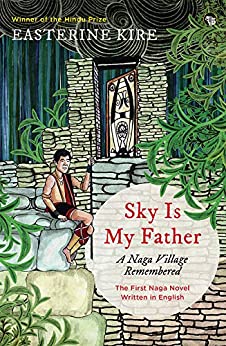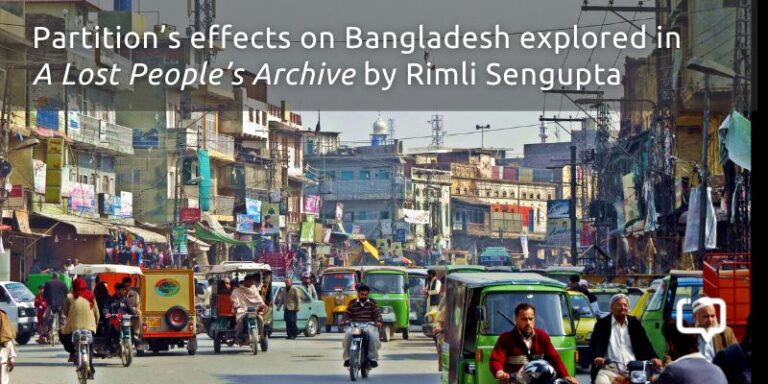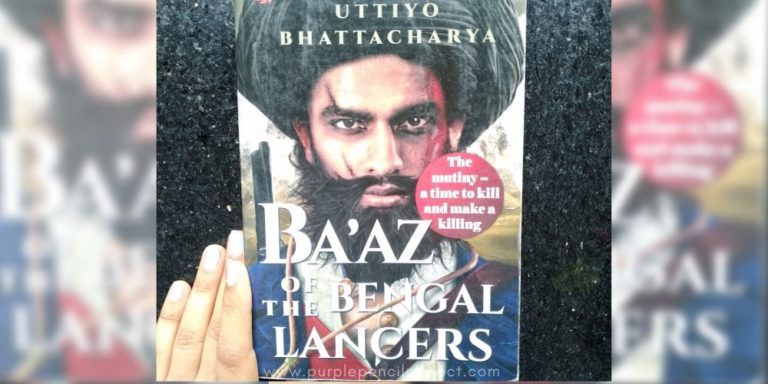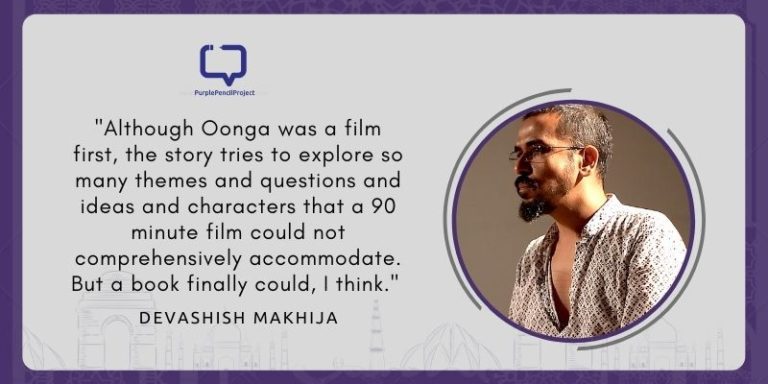Sky is my Father was originally published as A Naga Village Remembered, and recently reissued by Speaking Tiger books. The change in titles definitely changes expectations; I picked up Sky is my Father expecting folklore and myth, but was instead taken to 1800s Khonoma, in the Angami region of Nagaland, house of the Semo, Thevo, and Merhü clans and their valiant fight against British rule.
The History
Kire begins Sky is my Father with a detailed introduction about the geography of Khonoma and its surrounding areas, Khonoma’s status in the 1800s, how 1826 marked the year “the outside world began to encroach aggressively upon the village”, their resistance to the British Imperial Army till the late 1800s and the many battles that waged in between. It’s engaging, if a little dry, as straightforward historical writing tends to be, but lays a sound foundation for the historical segment before we engage with the fiction.
The Story and the People
Sky is My Father opens with a meeting among the men of the village to discuss settling an old score with another village and seeking revenge and the clan wars that punctuated their life. From this moment, we are introduced to key and secondary characters, customs of birth and death, an impending feast, Sekrenyi, for the new year, and several details that paint the picture of a day in the village. The canvas is prepared.
The picture that emerges tackles several narrative arcs; it is the eve of change in the life of the young warrior Levi, the setting sun on a people and their life untouched by and ignorant of the world outside the mountains, and a preface to the resistance to colonization, and change, that is coming. Across the 200 pages, we follow nearly 20 years in the life of this village, chiefly Levi’s family (his brother Lato, his mother Piano, his wife Peno and their kids, Sato and Roko), as men are imprisoned and return, as the young men marry, grow up, see their village burnt to the ground, build it up, only to find that the change they so strongly resisted has caught up nevertheless, and they are powerless against it. With this bitterness, the novel ends.
Style and Structure
Kire’s writing is rich in detail so that even those completely unfamiliar with Naga culture will quickly be pulled into the quotidian affairs of Khonoma; the meetings at the tehou, Feasts of Merit hosted to celebrate a good harvest, the observance of Genna days when the work in the fields is stopped, and more. She takes care though, and there is just the right touch of nostalgia, never romanticizing the past.
Often, the reader may want to linger on. I for one really wanted to know more about Levi’s life after his return from prison, especially the first few years of his marriage, but Kire does not indulge the reader. We move from feast and festival to battle and war not just between the Naga villages* and the British, but also between the old religion and new, old ways and the new, and more.
This jump from one event to another lends Sky is My Father its pace, but takes away from some of its merit as a work of fiction, especially for those who are used to reading long-form fiction.
The battle itself, an important marker of the story, does not immediately make the leap from a point in history to scene of fiction, coloured probably by the introduction which I read thoroughly before I began the book. In hindsight, it may be better to keep the introduction for the end.
Tenyidie words are peppered throughout the text in the form of the names of festivals, spirits, and war cries, and in how community members are addressed (Apfü for a parent, tsüdamia for clan leaders, vite for stop, and so forth). There is a full glossary of these words at the end, for the curious and the committed.
While characters stand out, especially Vipiano and Sato, the dialogues don’t do much in giving characters their distinct identities to leave the reader with.
Conclusion
The importance of a literary work can and should be judged on two levels; one, purely literary, and the other, purely social. Thankfully in the case of Sky is my Father, you don’t have to overlook the former to appreciate the latter. It’s compelling if a hurriedly told tale, that will engage the reader.
*Note: The battle of Khonoma was not a battle fought by Indians against the British, because India did not exist as a nation in 1879-1880. Furthermore, Nagas in that period defined themselves by their tribe identity or village identity. Even the term Naga was British imposed for political reasons and geographically locating us.
Favourite Quote
“Who is honest, you are honest. Who is honest, I am honest. We will compete with each other in honesty.”
























One Response
Such a wonderful piece of literature and prolific writer who has done a sublime job by taking this responsibility of depicting a culture and society with the help of a globally recognised language in order spread it worldwide. It’s very crucial to preserve at least one’s own culture and letting others to know about …… So a special thanks to the writer.